Heading into 2020, I had no idea–as none of us did–how the year would turn. When I was setting my book goal for the year in Goodreads back in January, I set a modest goal of 25 books and was shocked just recently to click in to the challenge and discover I have read 42 books this year (with two more that I’ll probably have finished before NYE).
If ever there was a year for books, 2020 would most certainly be it.
My range is vast. I love a light rom com, but I admittedly cannot survive on rom coms alone and crave the complexity of depth as well. Likewise, I cannot read too many tough subject matters in a row without needing a light read. It’s a juggling act. Couple that with being at the mercy of the library wait list means that sometimes I cannot control what my next read is.
I easily could’ve created a list of twenty favorite books from this year, but I finally narrowed it down to twelve (plus a few honorable mentions because…42 books and most I gave 4 or 5 stars).
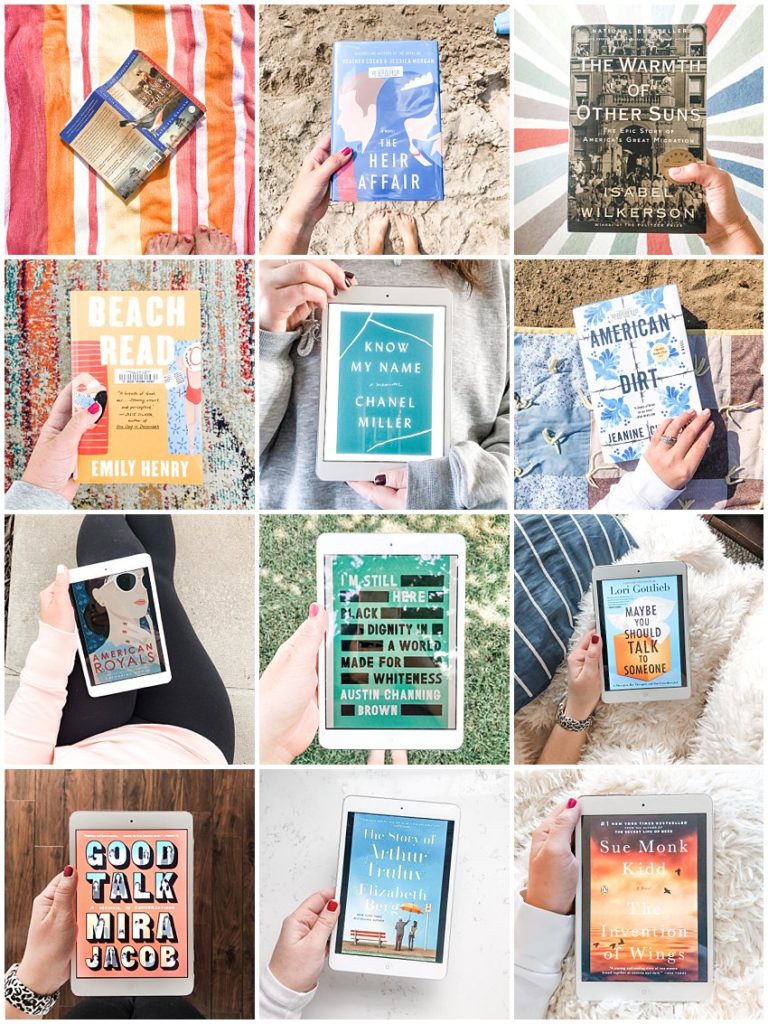
American Dirt by Jeanine Cummins – Instead of a review, I simply wrote down some of my favorite quotes from the author’s notes at the end of the book.
“It took me four years to research and write this novel, so I began long before talk about migrant caravans and building a wall entered the national zeitgeist. But even then I was frustrated by the tenor of the public discourse surrounding immigration in this country. The conversation always seemed to turn around policy issues, to the absolute exclusion of moral or humanitarian concerns. I was appalled at the way Latino migrants, even five year ago—and it has gotten exponentially worse since then—were characterized within that public discourse. At worst, we perceive them as an invading mob of resource-draining criminals, and, at best, a sort of helpless, impoverished, faceless brown mass, clamoring for help at our doorstep. We seldom think of them as our fellow human beings. People with the agency to make their own decisions, people who can contribute to their own bright futures, and to ours, as so many generation of oft-reviled immigrants have done before them.” p. 381
“I’m acutely aware that the people coming to our southern border are not one faceless brown mass but singular individuals, with stories and backgrounds and reasons for coming that are unique.” p. 382
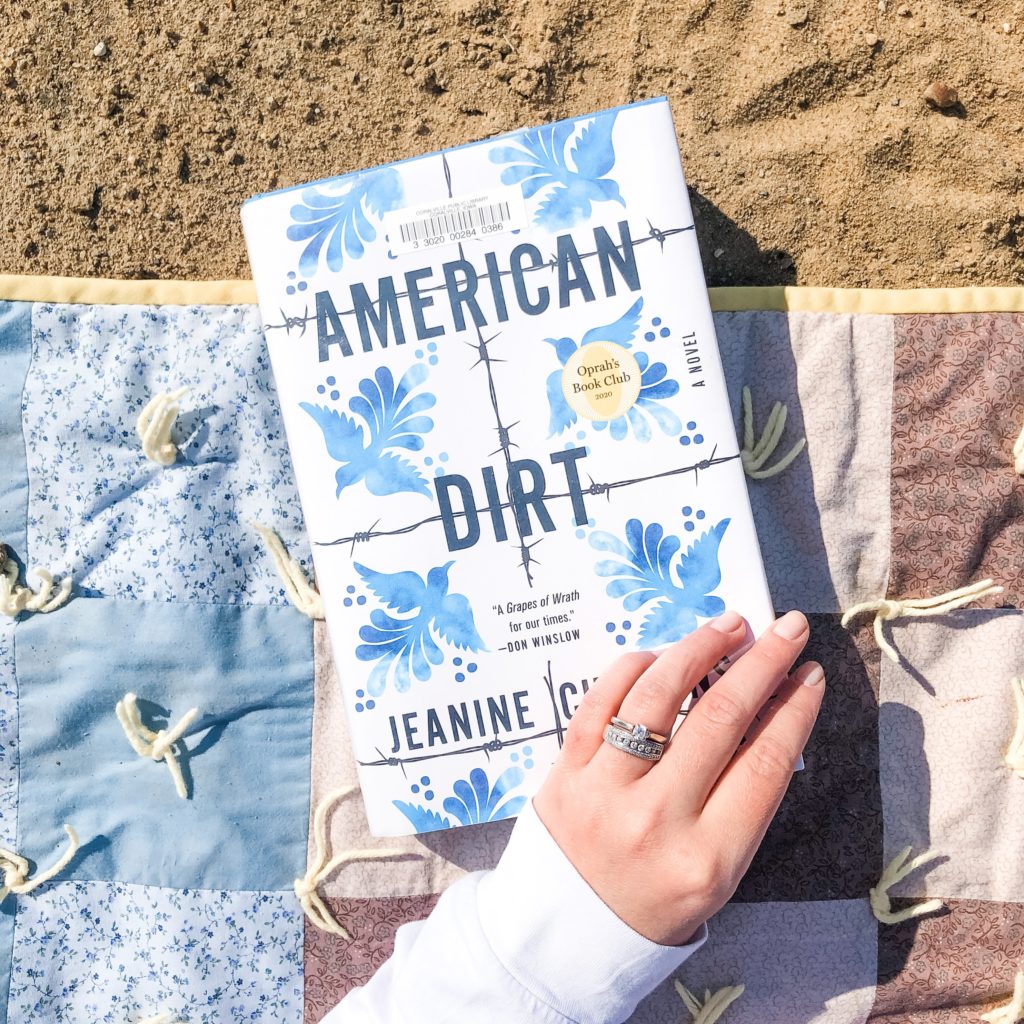
“One thing I had to learn while doing research for this book was to strangle the word American out of my own vocabulary. Elsewhere in the Western Hemisphere there’s some exasperation that the United States has co-opted that word, when in fact the American continents contain multitudes of cultures and people who consider themselves American, without the hijacked cultural connotations. In my conversations with Mexican people, I seldom heard the word American used to describe a citizen of this country—instead that use a word we don’t even have in English: estadounidense, United States-ian. As I traveled and researched, even the notion of the American dream began to feel propriety. There’s a wonderful piece of graffiti on the border wall in Tijuana that became, for me, the engine of this whole endevour. I photographed it and made it my computer wallpaper. Anytime I faltered or felt discouraged, I clicked back to my desktop and looked at it: También de este lado hay sueños. On this side, too, there are dreams.” p. 383
American Royals by Katharine McGee – I first heard about this book on Instagram from Heather Cocks & Jessica Morgan, authors of The Royal We. The concept is that George Washington was crowned king back in the day and so we have an American royal family. The story is told from several different perspectives–Crown Princess Beatrice, Princess Samantha, Nina, and Daphne–and each one is brilliant. Well, except Daphne, who we all hate because, spoiler, she’s the actual worst. There are at least 4 different love stories happening concurrently and they are each uniquely interesting (except, again, Daphne, because she’s horrible).
The only thing I disliked about this book was that it is a true series book in that it ends with *nothing* resolved that I wanted resolved. So now I’m anxiously awaiting my turn for the second book in this series because I need to know #allthethings right now.
(To note, since writing that review, the second book, Majesty, was released and I have read it as well. It was wonderful and I loved it!!! But I didn’t have room for both of them in my top 12, though it did make the honorable mentions list.)
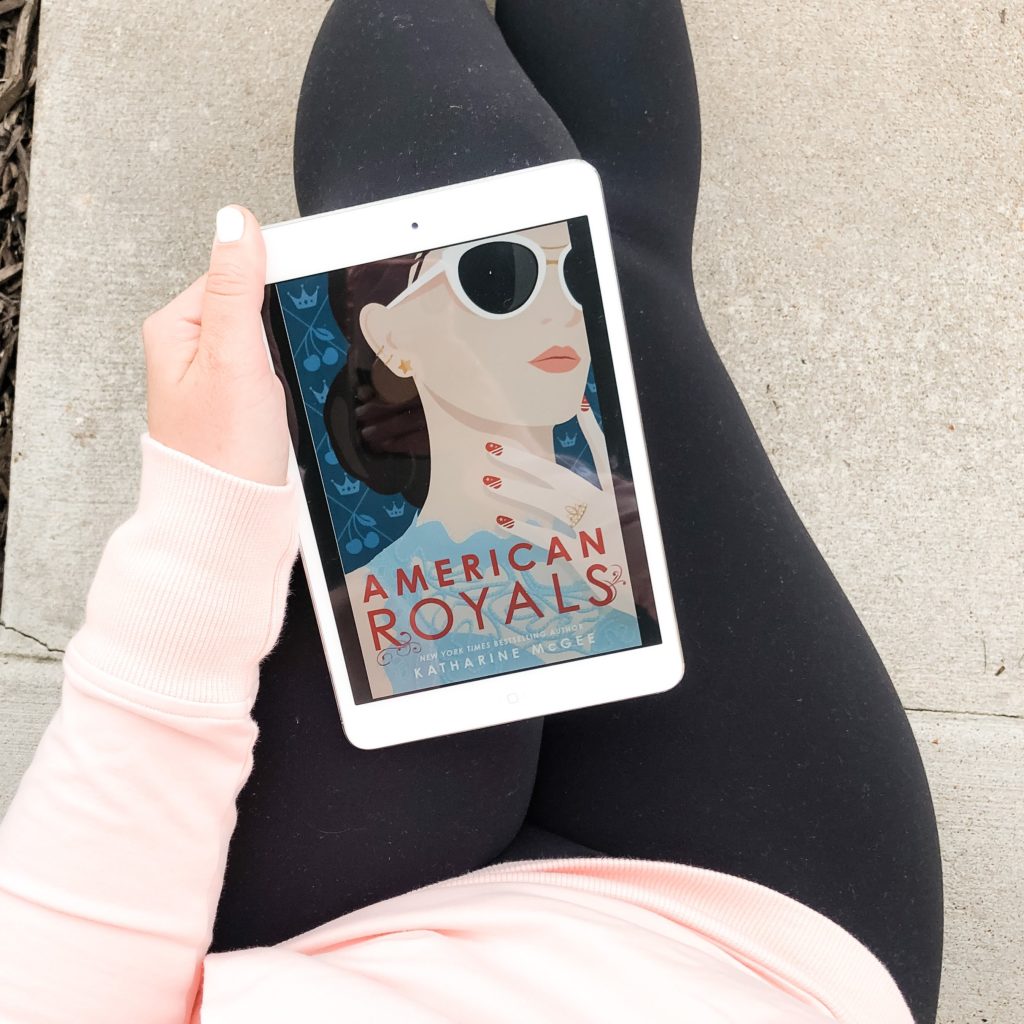
The Story of Arthur Truluv by Elizabeth Berg – Gosh, what a beautiful, sweet story. This was not a book with dramatic plot twists and edge-of-your-seat suspense. I don’t even know if there was a climax to the story. It was simple and lovely and riveting in the sense of being so beautiful, I just couldn’t stop reading.
The characters were just so…wonderful. Arthur, probably the sweetest elderly man you’ll ever meet who visits his wife’s grave every day—rain, snow, sleet, shine—to have a picnic lunch at her gravestone. Maddy, the outwardly rebellious, inwardly hurting and lonely teen whom you just can’t help but root for. She’s so misunderstood. Lucille, the slightly overzealous and knows-no-personal-boundaries woman who can bake like no one else. I just was rooting for them all…this eclectic, random group of people on a choose-your-own-family adventure.
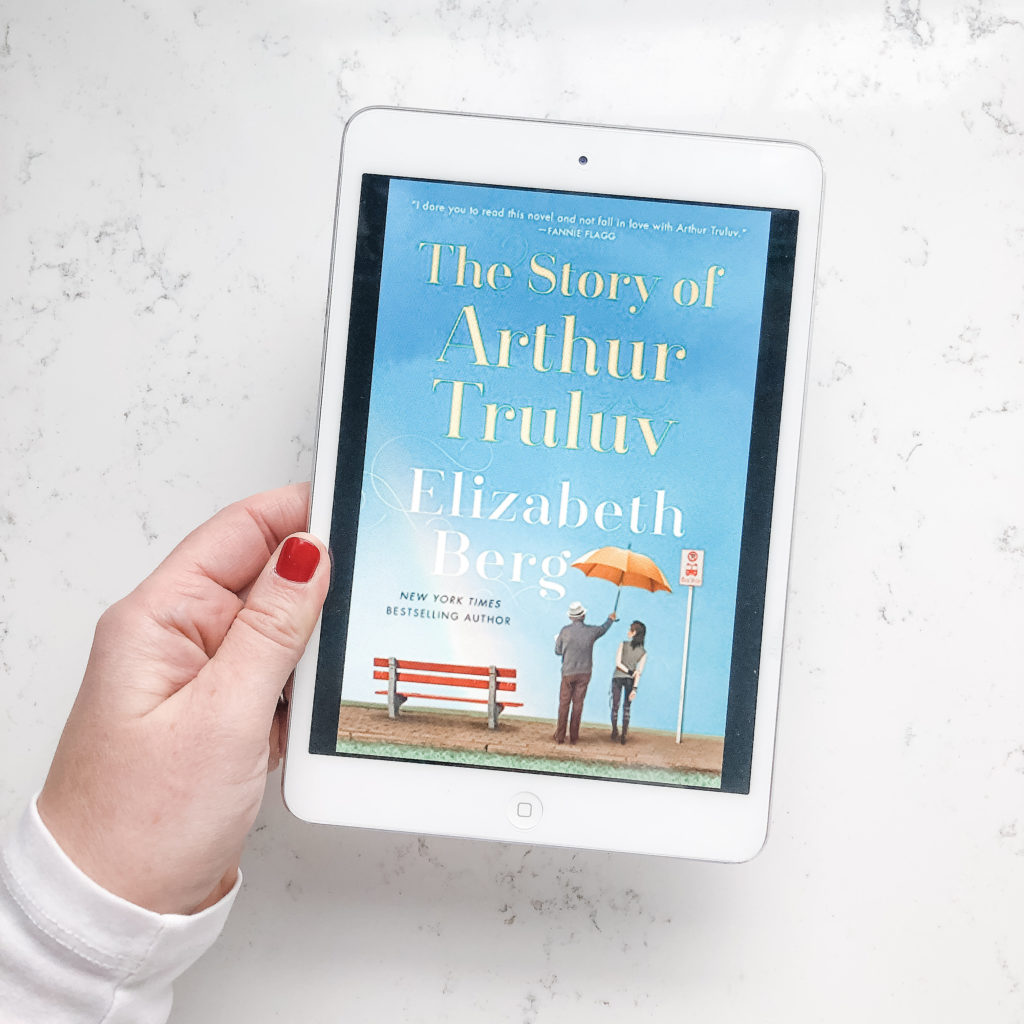
Beach Read by Emily Henry – Two authors—one a bestselling happily-ever-after, the other an acclaimed kill-off-the-whole-cast—are bogged down with writer’s block and broke and both end up in neighboring beach houses, supposed to be penning their next novels. They make a deal to swap storylines, in the hopes that they’ll be rejuvenated with inspiration, so she has to write dark fiction with him writing a sappy rom-com.
To note: this is not actually a beach read, as advertised by the cover and title. I do feel it should have been marketed differently, but I still enjoyed it after getting past my perceptions of what I thought it would be.
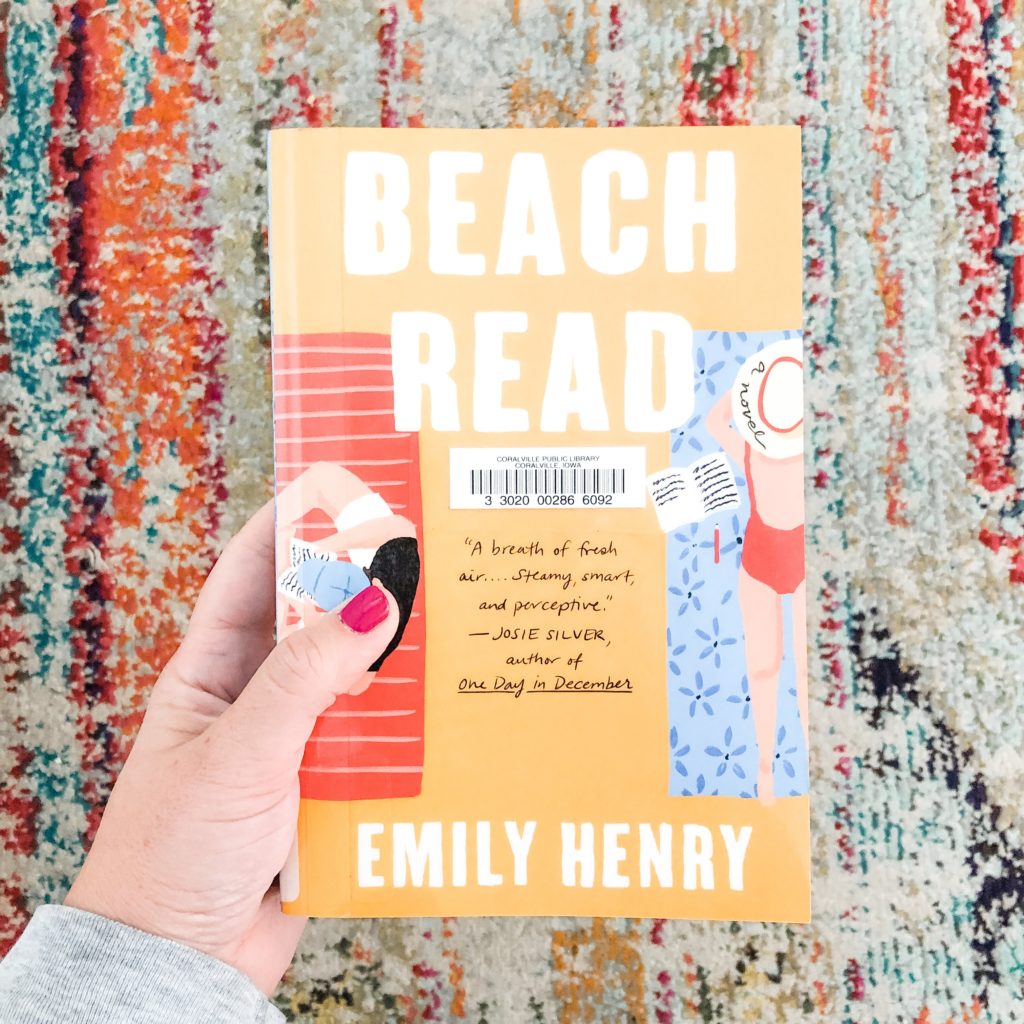
Glory Over Everything by Kathleen Grissom – ** spoiler alert ** The sequel to The Kitchen House (though it is its own stand-alone story), it is riveting in its own way, but cannot quite compete and it’s probably because I was comparing the two that I could only give this 4 stars. (Though it still made it onto this list so that should say something.) That being said, I could not put it down and there were many moments that I wanted to scream at James for his naivety about his own safety. (Duh, of course Rankin would come for him.) My main beef is with the ending. The suspense and terror led almost right to the end and then, suddenly, with a bit too much ease, [spoiler] everything turns out perfectly? I would love to know exactly how the author thinks a single, white-appearing Black man in 1830 is going to adopt 2 Black children along with his own infant daughter and still keep his status in society (which has also afforded him a very wealthy lifestyle) living as a white man. It all fell into place a bit too seamlessly to seem plausible, even as I was rooting for him to be able to pull it all off. (Even as I realize that rooting for him to pull it off requires him to hide his Blackness, which is a terrible societal requirement.)
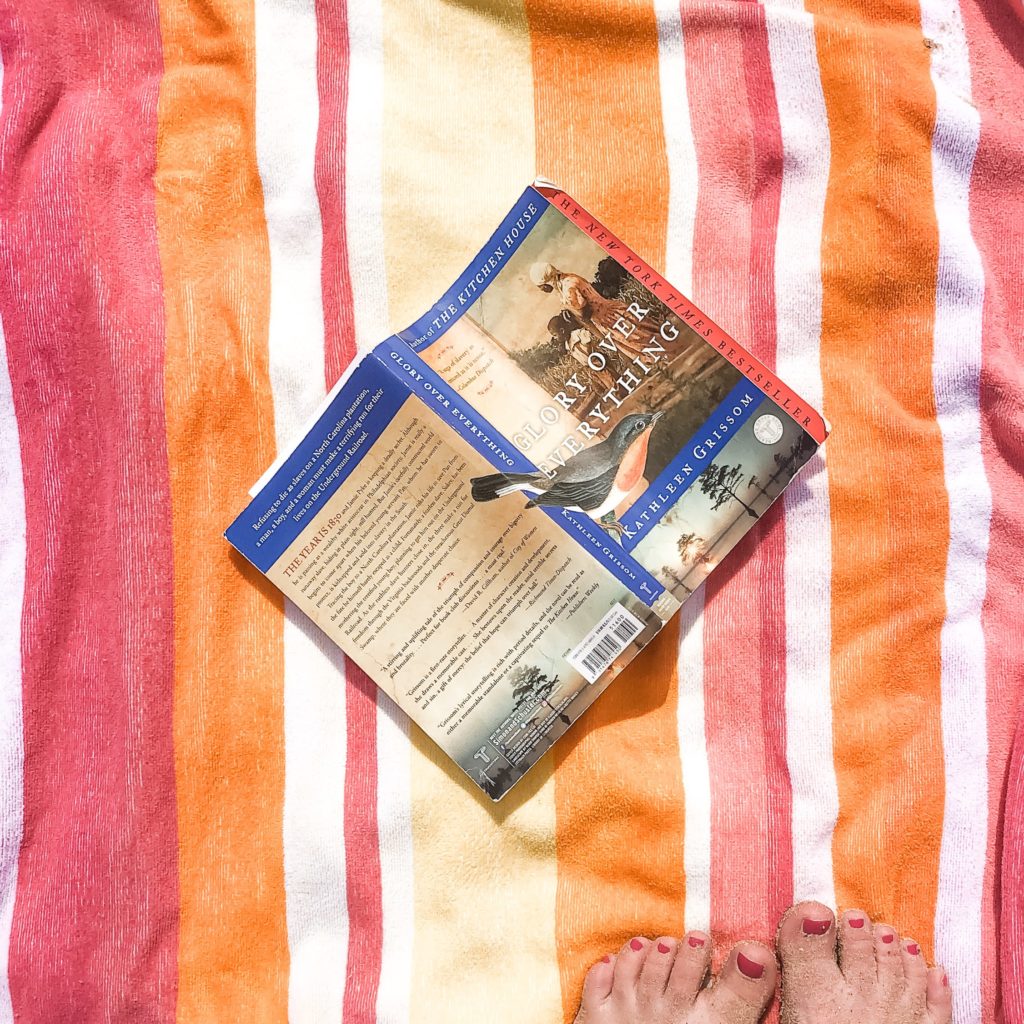
For some quick context, James was raised as a white child by his grandmother (being told she was his mother), was taught (and believed) all Black enslaved people to be the dirt of the earth, and then finds out that his actual mother is enslaved and was raped by her enslaver, his father. His grandmother/“mother” dies, which sets in motion his father/“brother” selling him as a slave at the age of 13. He kills his father and escapes, with a lot of hunters coming after him. He makes it to Philadelphia and eventually gets an apprenticeship in a silver shop. The owner and his wife come to love him as their own and, years later, adopt him. They never find out the truth about his past or his identity, which is something he wrestles with during the entire book: this lifestyle of “acting white”, but “being Black.” As an adult now, he must return to the south to try to rescue a Black child who worked for him who was stolen and sold into slavery. The kicker? James has a bad eye and wears an eyepatch so he’s not exactly easy to fly under the radar and now, 20 years later, it turns out, he’s still a wanted man.
It is a good read, for sure, but the ending felt too hopeful considering what we know about that era, slavery vs. freedom, and the worth (and worthlessness) that white people apply/ied to Black people. Yes, the north was further along in equality than the south, but I have some historically-backed doubts that they were THAT much further ahead.
Good Talk by Mira Jacob – I honestly had no idea what this was about before I opened it. I just knew it was recommended by someone with great book tastes so I grabbed it from the library and dove in clueless.
Holy moly. It is brilliant! I’ve never read a graphic memoir before (is that even a genre?), but the way Jacob lays out so many necessary conversations about race, politics, religion, etc. invites the reader directly into her shoes and it is such an important place for me, especially as a white woman, to spend some time.
It’s a quick read (I really was sad that it was over) and I could not recommend it more highly!

I’m Still Here: Black Dignity in a World Made for Whiteness by Austin Channing Brown – Instead of a review, I wrote down some of my favorite quotes straight from the pages, glowing under my highlighter.
“In my experience, white people who believe that are safe often prove dangerous when that identity is challenged. This is in part because most white people still believe that they are good and the true racists are easy to spot. The true racists wouldn’t have hired me, wouldn’t have brought me on this trip, wouldn’t have noticed the homogeneous environment. … When you believe niceness disproves the presence of racism, it’s easy to start believing bigotry is rare, and that the label racist should be applied only to mean-spirited, intentional acts of discrimination. The problem with this framework—besides being a gross misunderstanding of how racism operates in systems and structures enabled by nice people—is that it obligates me to be nice in return, rather than truthful. I am expected to come closer to the racists. Be nicer to them. Coddle them.
Even more, if most white people are good, innocent, lovely folks who are just angry or scared or ignorant, it naturally follows that whenever racial tension arises, I must be the problem.”
“White people desperately want to believe that only the lonely, isolated “whites only” club members are racist. This is why the word racist offends “nice white people” so deeply. It challenges their self-identification as good people. Sadly, most white people are more worried about being called racist than about whether or not their actions are in fact racist or harmful.”
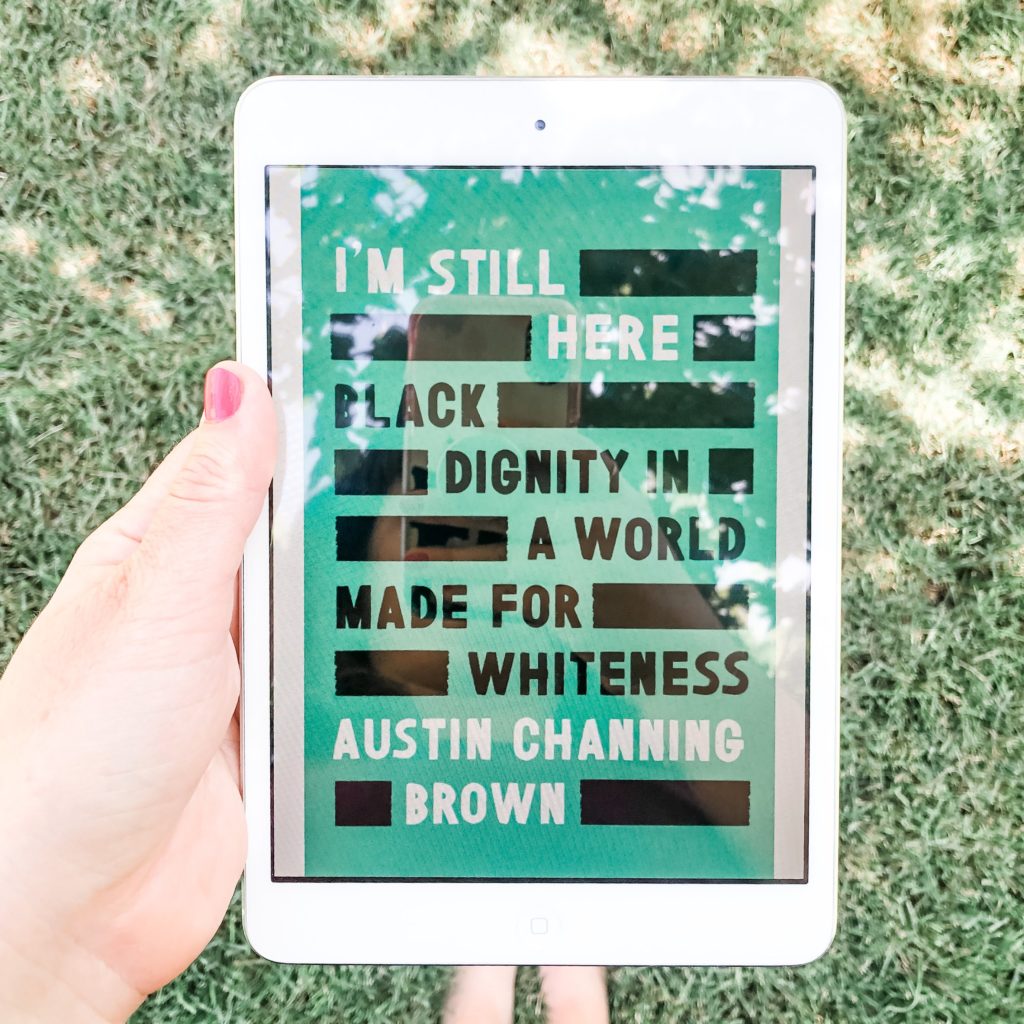
“Slavery was no accident.
We didn’t trip and fall into black subjugation.
It was all on purpose.
Every bit of it was on purpose.
Racial injustice, like slavery and our system of mass incarceration, were purposeful inventions, but instead of seeking to understand how we got here, the national narrative remains filled with comforting myths, patchwork time lines, and colonial ideals. … Many American try to live comfortably in ignorance of America’s racial history.”
“We have painted the hundred-year history of Jim Crow as little more than mean signage and the inconvenience that white people and Black people could not drink from the same fountain. But those signs weren’t just “mean.” They were perpetual reminders of the swift humiliation and brutal violence that could be suffered at any moment in the presence of whiteness. Jim Crow meant paying taxes for services one could not fully enjoy; working for meager wages; and owning nothing that couldn’t be snatched away. For many black families, it meant never building wealth and never having legal recourse for injustice. The mob violence, the burned-down homes, the bombed churches and businesses, the Black bodies that were lynched every couple of days—Jim Crow was walking through life measuring every step.”
“The moment Black Americans achieved freedom from enslavement, America could have put to death the idea of Black inferiority. But whiteness was not prepared to sober up from the drunkenness of power over another people group. Whiteness was not ready to give up the ability to control, humiliate, or do violence to any Black body in the vicinity—all without consequence.”
“To be a Negro in this country and to be relatively conscious, is to be in a rage almost all the time. So that the first problem is how to control that rage so that it won’t destroy you. Part of the rage is this: it isn’t only what is happening to you, but it’s what’s happening all around you all of the time, in the face of the most extraordinary and criminal indifference, the indifference and ignorance of most white people in this country.” – James Baldwin in 1961, quoted by Austin Channing Brown
“Sometimes when I’m hanging out with my white friends, they notice that I call my husband, Tommie, whenever I arrive, and then call him again when I’m leaving. They’ve never teased me outright for this, but I have seen the looks of amusement pass between them. I know they think Tommie and I do this because we are inseparable, or because he is demanding. For a moment my feminist card is revoked in their eyes. But these are our rituals for staying safe when we’re out in the world. This is how we beat back the fear.”
“Underneath all the other hurtful words, [black] is the one that whiteness really wants to spew.
Whiteness has never needed much of an excuse for our deaths.
Accused of looking at a white woman. Resisted arrest. Scared the officer. Thought he had a weapon. Had a criminal record (that the officer knew nothing about). Looked suspicious. Looked like someone else.
It doesn’t really matter. At the end of the day, Blackness is always the true offense.”
“White people often want me to be grateful for America’s so-called racial progress. …They want me to praise American for “how far we have come.” This is where they want me to place my hope—in the narrative that says things are getting better.
But I cannot.
…I am not impressed that slavery was abolished or that Jim Crow ended. I feel no need to pay America on its back for these “achievements.” This is how it always should have been.”
“Reconciliation is ministry that belongs to Jesus. Jesus, who left the comfort of heaven and put on flesh, experiencing the beauty and brutality of being human. Jesus, who died on a cross and rose from the grave, making a way for all humanity to be joined in union with God. Through this divine experience of death, life, and reunion, we find the capacity for the work. In this, we see why reconciliation can transform not just our hearts or our churches but one day the whole world.
Fortunately, Jesus doesn’t need all white people to get on board before justice and reconciliation can be achieved.
…The march toward change has been grueling, but it is real. And all it has ever taken was the transformed—the people of color confronting the past and present to imagine a new future, and the handful of white people willing to release indifference and join the struggle.”
“Christians talk about love a lot. It’s on of our favorite words, especially when the topic is race.
But I have found this love to be largely inconsequential. More often than not, my experience has been that whiteness sees love as a prize it is owed, rather than a moral obligation it must demonstrate. Love, for whiteness, dissolves into a demand for grace, for niceness, for endless patience—to keep everyone feeling comfortable while hearts are being changed. In this way, so-called love dodges any responsibility for action and waits for the great catalytic moment that finally spurs accountability.”
Know My Name by Chanel Miller – Again, I will not muddy the waters with my own thoughts on this except to say this book should be required reading in high school.
“I didn’t know that money could make the cell doors swing open. I didn’t know that if a woman was drunk when the violence occurred, she wouldn’t be taken seriously. I didn’t know that if he was drunk when the violence occurred, people would offer him sympathy. I didn’t know that my loss of memory would become his opportunity. I didn’t know that being a victim was synonymous with not being believed.”
“Alleged victim said she “blacked out” after drinking two whiskey shots, two vodka shots, and stepping outside the frat house with her sister. How’d they know exactly what I’d had to drink? I’d never spoken to any reporters. Then I remembered myself at the hospital, sitting in that plastic chair, wet hair soaking my cotton neckline, chest caved to conceal that I wasn’t wearing a bra, my insides still tender from the exam. Everything I had recollected, details I had fumbled to provide into that little black recorder, had been typed into manuscripts. Reporters must have sifted through them, using my words to construct their own narrative for the public to pore over. I felt the walls of my life being torn down, the whole world caving in. If words spoken softly at a rape clinic were projected over a megaphone, where was it safe for me to speak?”
“There was another line of argument that nagged at me: the suggestion that boys simply could not help themselves. … I understand you are not supposed to walk into a lion’s den because you could get mauled. But lions are wild animals. And boys are people, they have minds, live in a society with laws. Groping others was not a natural reflex, biologically built in. It was a cognitive action they were capable of controlling.”
“I bought a desk on Craigslist. A nice couple arrived to deliver it. The woman called me, said they were outside. We can help you carry it in, but I understand if you don’t want us in your home, because you know, Craigslist people. I just don’t want to- The man said, Well how else is she going to carry the desk? I understand what the woman meant, that a transaction as simple as receiving a piece of furniture from a stranger possessed an inherent threat, that any time we met someone online, we must scan for signs of assault, rape, death, etc. We knew this. But the guy did not speak this language; he just saw a desk.”
“When a woman is assaulted, one of the first questions people ask is, Did you say no? This question assumes that the answer was always yes, and that it is her job to revoke the agreement. … But why are they allowed to touch us until we physically fight them off? Why is the door open until we have to slam it shut?”
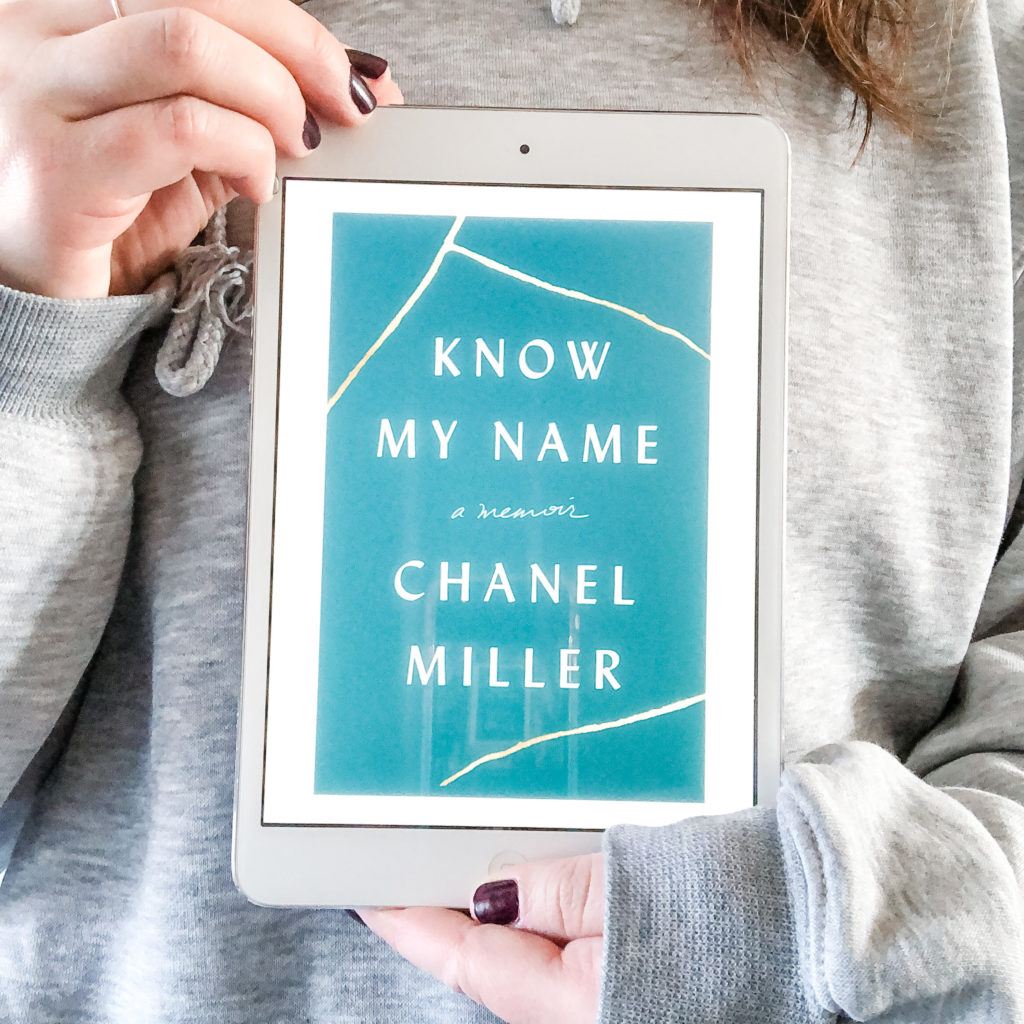
“When Trump’s Access Hollywood tape surfaced, the average person acknowledged what he said was vulgar, lewd, foul. Anderson Cooper asked Trump point-blank if he understood he was talking about sexual assault and the nation watched him shrug and say, locker-room talk. … This was locker-room banter, a private conversation that took place many years ago. Instead of apologizing, he dragged it from the bus to the locker room, another place inaccessible to women. He never said it was supposed to be different, only said it was supposed to be private. He intended to keep us out, we were never meant to hear. He was not sorry for what he said, just sorry he was caught. … I just start kissing them. Just kiss. I don’t even wait. “I kissed her,” Brock said. “And you didn’t ask her permission before you kissed her, did you,” my DA said. “No,” Brock said. I moved on her like a bitch. “I kissed her cheek and ear,” Brock said. “I touched her breasts. I moved her dress down.” Grab ‘em by the pussy. “I took off her underwear…and then I fingered her.” I did try and fuck her. We live in a time where it has become difficult to distinguish between the President’s words and that of a nineteen-year-old assailant.”
“If students can be swiftly expelled [from college] for plagiarism or dealing drugs, the same punishment should be inflicted if there’s enough evidence to suggest they pose a threat to others. Oh but his reputation! That’s really where he suffers. My advice is, if he’s worried about his reputation, don’t rape anyone.”
“Do you understand, when you ask a victim to report, what you’re telling her to walk into? Why didn’t she go to the police? I had deputies, a detective, paramedics, I had squad cards, an ambulance. I had them handcuffing him, photographing me, recording witness accounts, jotting down every detail of my body from the thin chain wrapped around my neck to the lace of my shoes, my clothes collected, his clothes collected. I pressed charges within twenty-four hours of the assault and here I was three years later reading the appellate attorney’s statements about how I was clearly in front of the dumpster, not in any way “behind” it. How it was “merely exterior massaging” of my “genital opening,” how we were enamored young people expressing their sexual urges. When you say go to the police what do you envision? … [Women] are taught, if you speak, something bad happens to him. You will be blamed for every job he doesn’t get, every game he doesn’t play. His family, friends, community, team, will unleash hell on you, are you sure you want that?”
“Some call it a witch hunt, said she’s after him. I ask, starting when. Mark the day. Trace it back. I can almost guarantee that after teh assault she tried to live her life. Ask her what she did the next day and she’d say, well, I went to work. She didn’t pick up a pitchfork, hire a lawyer. She made her bed, buttoned her shirt, took shower and after. Every woman who spoke out did so because she hit a point where she could no longer live another day in the life she tried to build. So she turned, slowly, back around to face it. … Each time a survivor resurfaced, people were quick to say what does she want, why did it take her so long, why now, why not then, why not faster. But damage does not stick to deadlines. If she emerges, why don’t we ask her how it was possible she lived with that hurt for so long, ask who taught her to never uncover it.”
“I can’t promise your journey will be good, I actually guarantee that it won’t. I can’t promise glorious days or shining redemption. I am here to assure the opposite; you will be faced with the hardest days of your life. The agony is incessant, unyielding, but when you get to the point where you feel like everything’s gone, there’s a little twist, a flame, a small shift. It is subtle, it comes when you least expect it. Wait for it. This is the rule of the universe, this is the one thing in life I know to be true. No matter how awful and long your journey, I can promise you the turn. One day it will lift.”
“The place to be remembered if not where I was assaulted, but where he fell, where I was saved, where two men declared stop, no more, not here, not now, not ever. When they held him down, they freed me. Without them, there would’ve never been a chance for me to speak my words in the first place, no hearing, no trial, no statement. They gave me a chance, to grow and fight and come into myself again.”
Maybe You Should Talk To Someone by Lori Gottlieb – I nearly passed this by, thinking it was going to be some sort of self-help book, but I am so glad I gave it a try. This is a memoir about a therapist, her own therapy sessions, and her therapy sessions with clients (obviously reworked, renamed, and concealed). Aside from having some solid content (!!), it is incredibly well-written and I just loved this book so so so much!
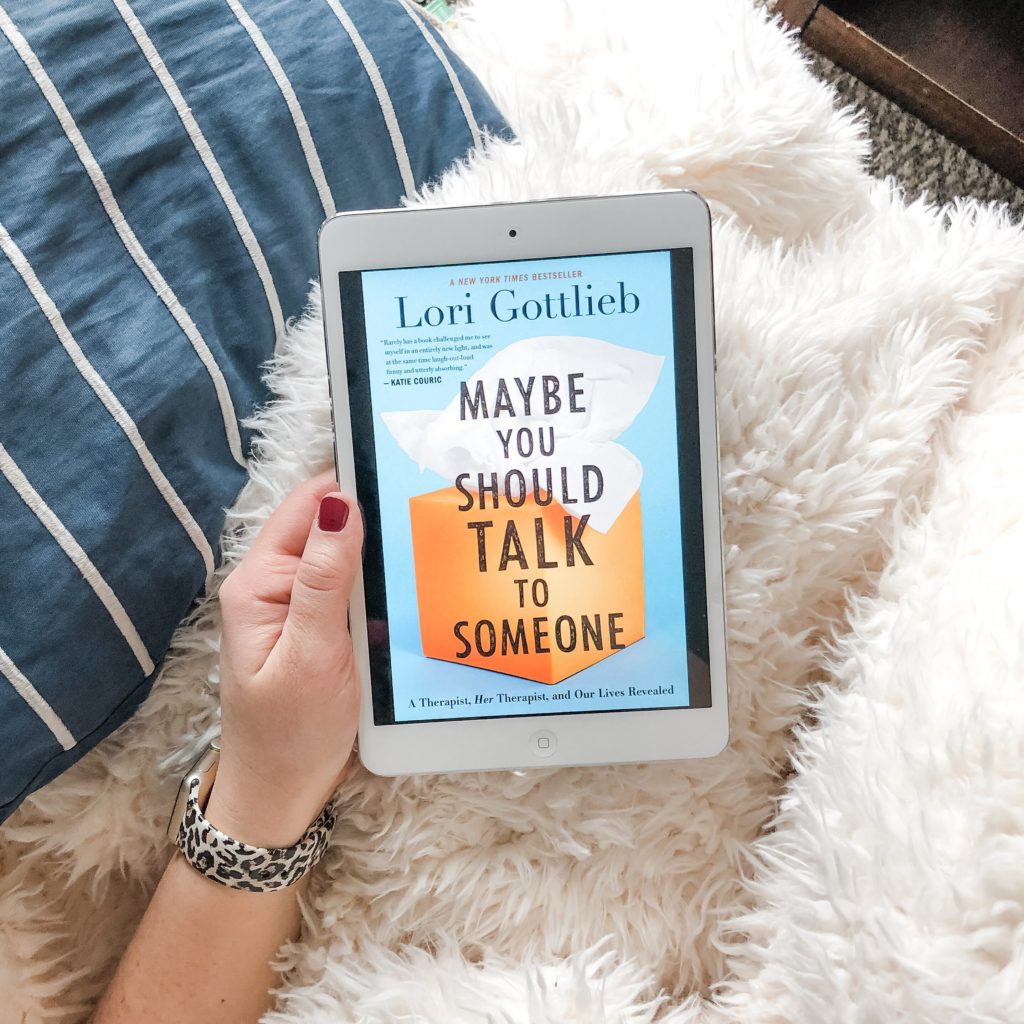
The Heir Affair by Heather Cocks & Jessica Morgan – You know I waitlisted this book long before it ever hit shelves!
For all fans of The Royal We, Bex and Prince Nicholas are BAACCCKKK. Drama and tension is high. Bex and Nick went into hiding at the end of the last book and now have to go back to London to face the music, so to speak. (Ahem, scandal!) The real winner in this book was surprisingly the Queen herself. I did not expect that relationship at all and it was beyond delightful!
Thank you, @fuggirls, for giving us this in the year we needed it the most.
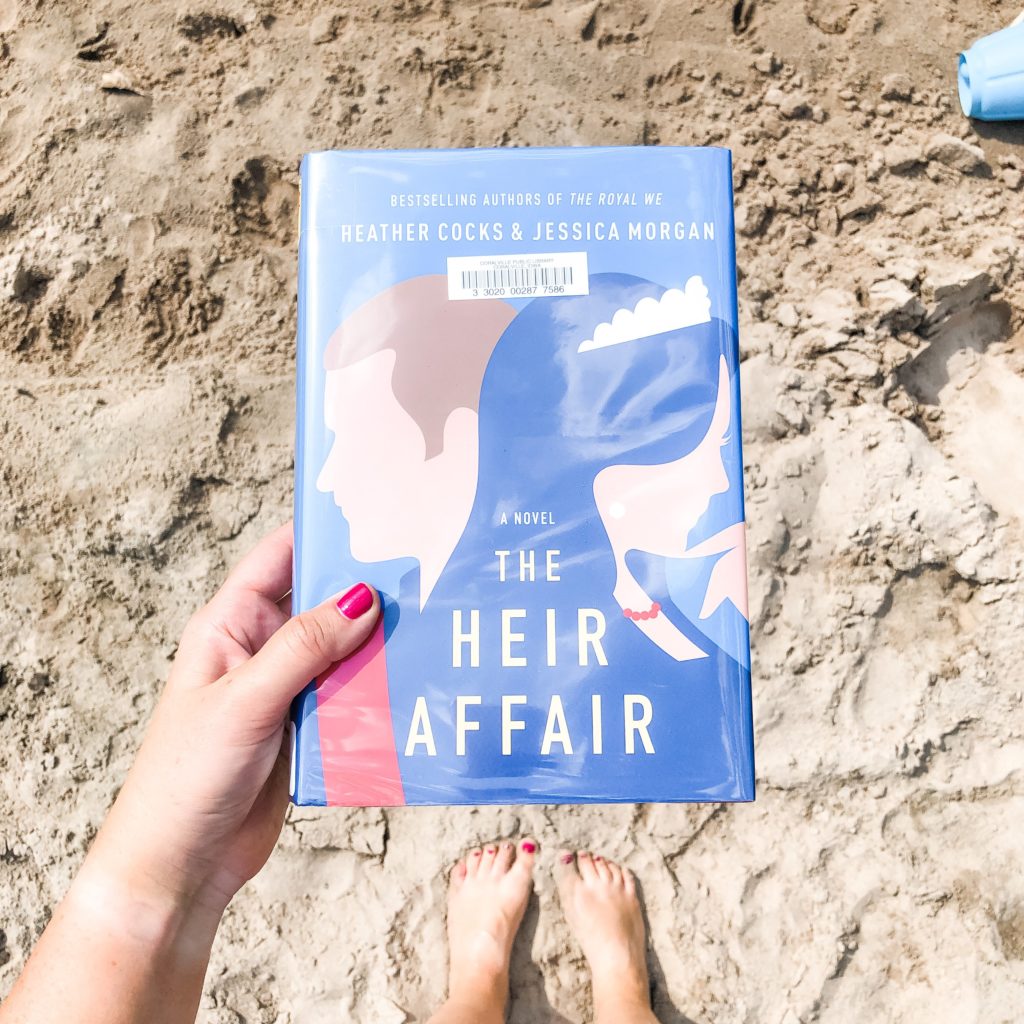
The Invention of Wings by Sue Monk Kidd – Wow! I wasn’t entirely sure what I was getting into with this. I knew Sue Monk Kidd was tackling slavery in this book, and I was pleasantly surprised with the depth of her research. The years that passed within the pages, the growth of both Hetty “Handful” and Sarah, was beautiful and amazing to watch. The ending was 👌🏻 and not at all what I expected. A beautiful novel covering slavery with a surprise dash of women’s rights!
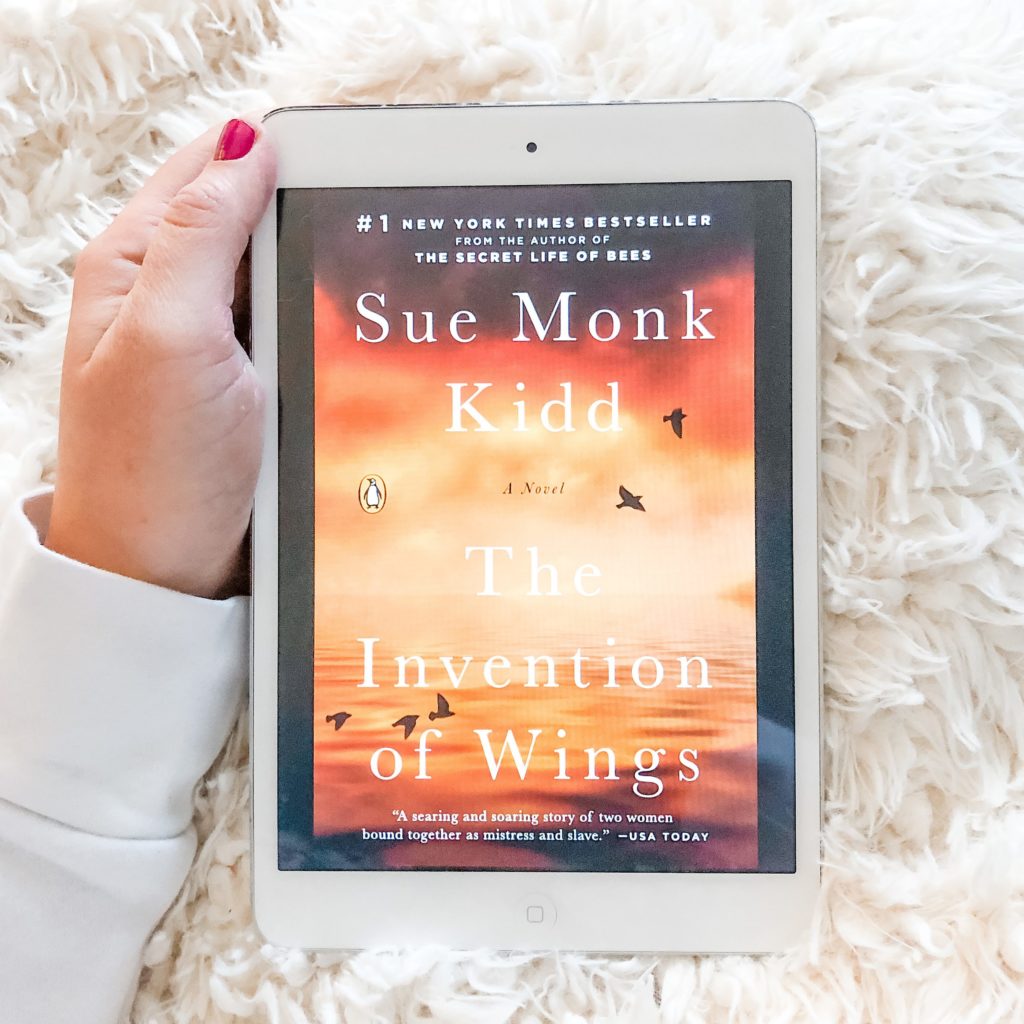
The Warmth of Other Suns by Isabel Wilkerson – This book is not for the faint of heart (and IT IS SO GOOD). First, it’s over 600 pages long. And second, it’s a non-fiction, historic look at our nation post-slavery (specifically the Great Migration) and, guys, if you didn’t know: it’s pretty ugly. Slavery was outlawed, but the drunkenness of power was too much to sober up from and white people invented all kinds of laws that took Black people directly from slavery to the hideous era of Jim Crow. Isabel Wilkerson spent years researching the Great Migration (something I didn’t learn about until I was in my 30s!!) and this book is the result of her labor, drenched in facts and sources and first-person accounts. She focuses on three people—Ida Mae, George, and Robert—and tells their life stories, following their individual migration journeys (oh my gosh, I was on pins and needles through the escaping parts!), their settlements, and trying to restart with nothing in new states that may as well have been a new country. I learned SO MUCH. I give it all the stars and think it should be required reading in any American history class.
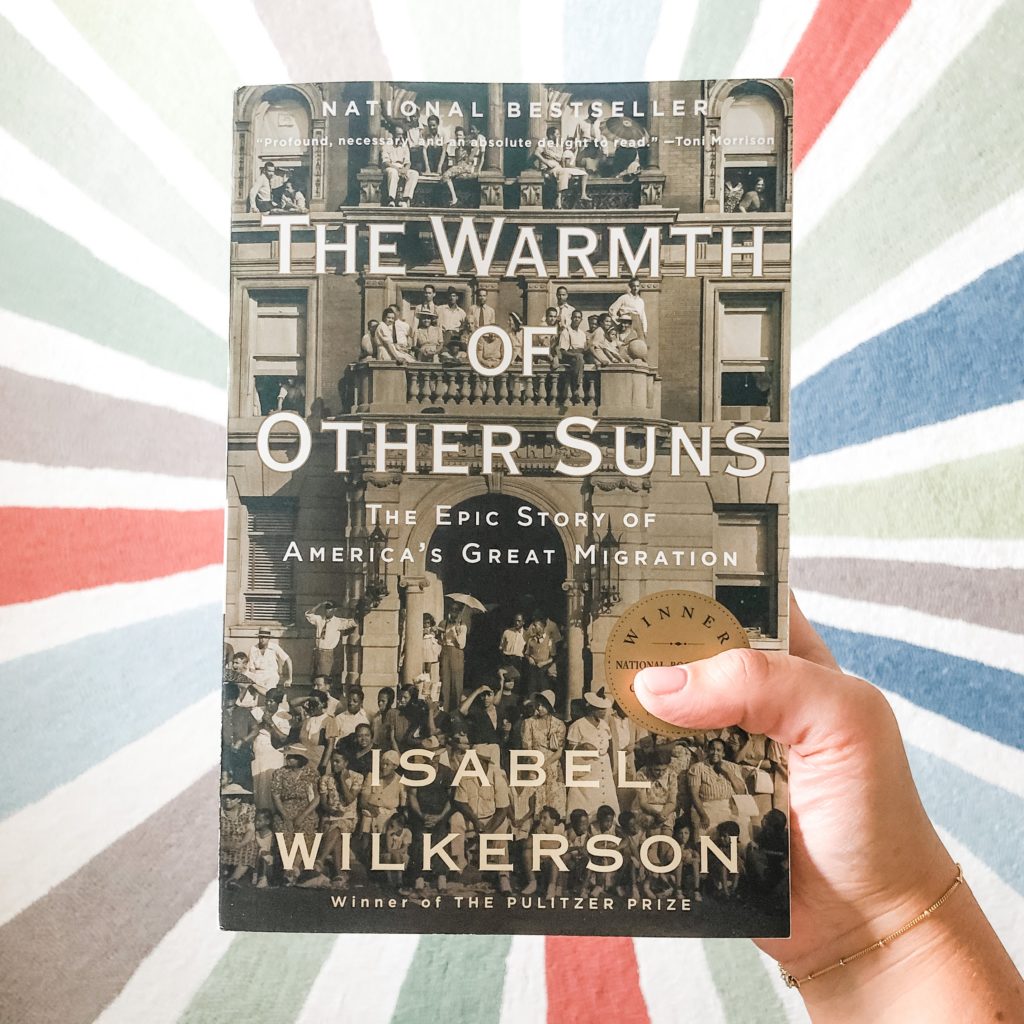
Honorable Mentions…
The Second Home by Christina Clancy – I love books with various perspectives and the rotating POVs between Ann, Poppy, and Michael were so perfectly woven and imagined. My friend, Gail (whom I get 95% of my book recs from!), reviewed it best: “There are some books that you can tell, even within the first few pages, will imprint on your heart forever. Christina Clancy’s debut, Second Home, is one such book for me. Its plot centers on a Midwestern family from Milwaukee who summers in their old family home (one passed down for generations) in Wellfleet (halfway between the “tip” and the “elbow” of Cape Cod). The book’s three main characters, Ann, Poppy, and Michael, alternate points of view throughout the novel—their complicated dynamics and life-altering secrets acting as the glue that holds this beautifully rendered narrative together.
“So why is Second Home a five-star kind of read for me? Because it falls into that small but remarkable category of novels I’ve read wherein the characters feel SO real, it’s as if, should I look up from the page, I’d see them sitting across from me. For that reason, I know that these three siblings—along with their fabulous parents, Ed and Connie—will never leave my heart. At various points in my life moving forward, I’ll think of them in that way that will make me wonder, “What are they up to now?”
“Sigh. I’m already jealous of anybody who gets a chance to read this for the first time.” Amen to that!
In Five Years by Rebecca Serle – I did not expect this to be a book that brought my heart to actual tears. This is less about figuring out the mystery of the 5-year dream and more about the divine beauty of female friendship. I was completely undone by Bella and Dannie. What a treasure of a story.
Talking as Fast as I Can by Lauren Graham – As an avid GG (and Parenthood) fan, this book actually made me cry. Lauren’s diary snippets from the reboot were perfection. And now, after watching all 7 seasons plus the reboot twice already, I’m fully planning to sit back down and start at S.1, Ep.1. again.
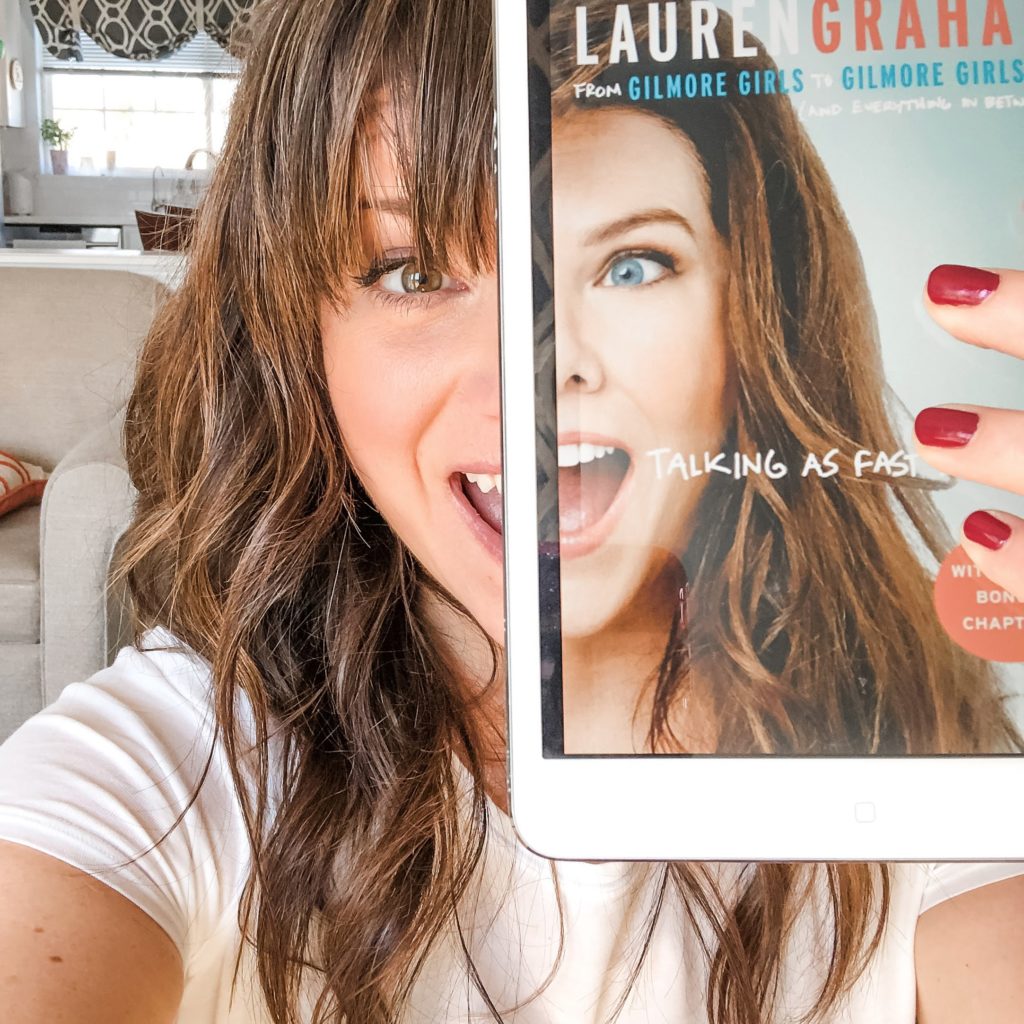
One To Watch by Kate Stayman-London – This book is definitely for Bachelor fans! The entire premise is that Bea, a plus size fashion blogger, has been selected as the next Main Squeeze (Bachelorette). It’s a beautiful, intimate look at what it means to be plus size, the misconceptions of plus size, and the bullying and rejection that takes place strictly based on size/appearance. It was a perfect summer rom-com!
Majesty by Katharine McGee – I’ve been waiting for this book (rather impatiently) since I finished American Royals months ago. The thing I most admired about this book was that it did not turn out at all how I expected or how a traditional rom com would, though I honestly loved this ending better than what I had imagined (with exception to the female who needs to be banished forever…if you know, you know). The characters felt richer and deeper this time around and I truly loved watching Beatrice’s growth.
Overall, it feels like there might be a third??? I mean, there was an ending, but also, there are still a lot of loose ends…
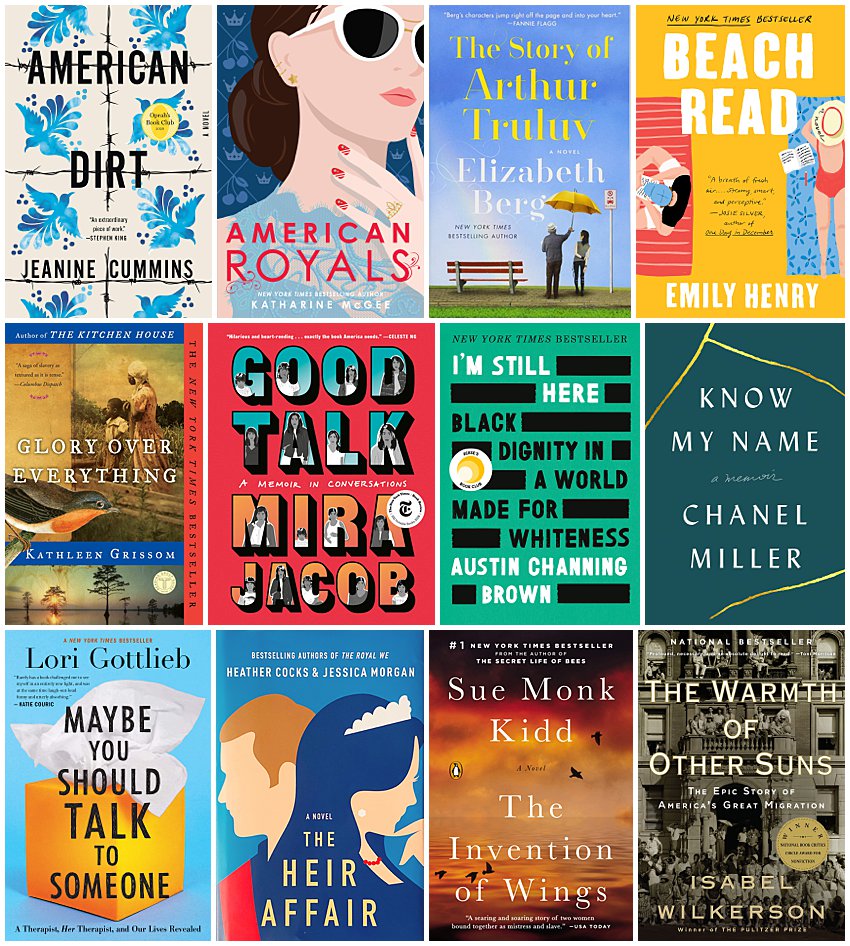
add a comment
+ COMMENTS